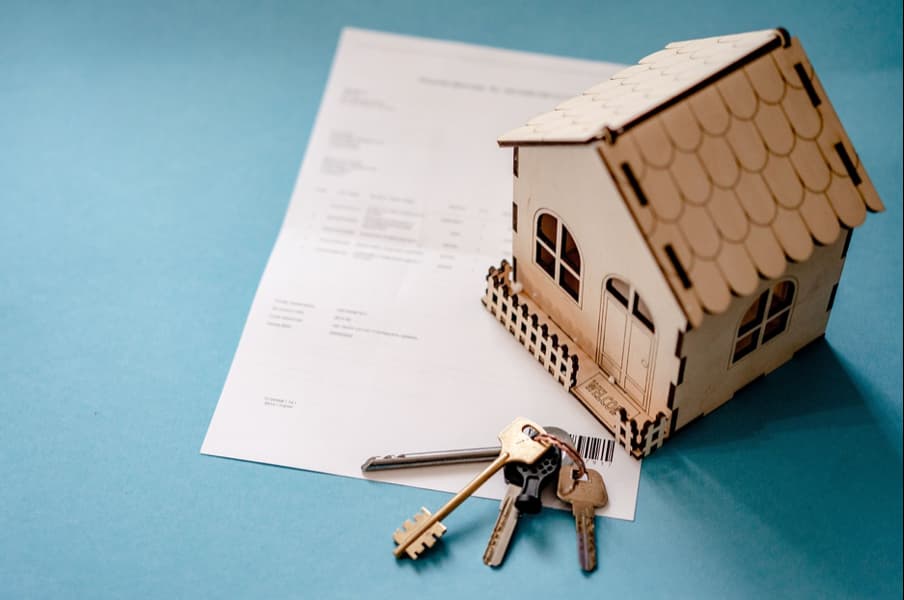(Image source: pixabay.com)
Are you considering purchasing a property somewhere in the beautiful landscapes of the French Riviera? As a buyer, it’s crucial to understand the intricacies of French property surveys and diagnostic reports. These surveys play a pivotal role in safeguarding both buyers and sellers by ensuring the health, safety, and environmental impact of a property – and some are required by law.
In this blog, we explain what you need to know.
Compulsory Diagnostic Reports
Several property surveys are obligatory during property transactions in France. These surveys include a series of diagnostic tests are consolidated into a single file called the dossier de diagnostic technique (Technical Diagnosis File), or DDT for short. The DDT contains essential information about the property’s condition and includes the following reports:
- Asbestos Inspection: Relevant for buildings with permits issued before July 1st, 1997. This report identifies any asbestos-containing materials within the property.
- Wastewater Inspection: Mandatory for properties not connected to public water drainage systems. It confirms conformity to current wastewater regulations.
- Lead Inspection: Applies to properties built before January 1st, 1949. This report identifies the presence of lead and its potential effects on health.
- Electrical Inspection: For buildings with electrical installations over 15 years old. It outlines the state of the electrical installation in the property.
- Natural & Ecological Risk Inspection: Pertains to properties in areas prone to natural risks like flooding or landslides. It certifies the property’s risk exposure.
- Gas Inspection: For buildings where the gas installation is over 15 years old. This report outlines the condition of the installation, and what action, if any, is necessary to bring it up to standard.
- Termite/Fungal/Insect Inspection: Mandatory in certain areas and recommended for buildings over 25 years old. This report identifies the presence of pests.
- Surface Area Inspection: Required for communal properties, indicating the living space’s total surface area.
- Energy Performance Inspection: Applies to all buildings. This report assesses the property’s energy consumption, environmental impact, and greenhouse gas emissions.
Read more: What Is a DPE Report in France?
The Importance of Diagnostic Surveys
Covering aspects like energy efficiency, water drainage, and potential risks, the DDT plays a crucial role in providing buyers with essential information about the property’s condition in terms of its health, safety, and environmental impact.
The DDT is required by law on all properties up for sale, and it is the responsibility of the seller to commission it.
Buyers should carefully review the DDT and consider its implications on the property’s value and condition before proceeding with the purchase.
Additional Surveys: Building and Structural
While diagnostic surveys are mandatory and comprehensive in what they cover, they don’t encompass all potential issues with a property.
As such, buyers can choose to commission additional building and structural surveys performed by a professional property surveyor, which must be requested and paid for by the buyer. These surveys are highly recommended, because it is only by having such an investigation carried out that you can be sure there a no serious structural defects to the property – or, if there any defects, how much they will cost to rectify.
Having such information is crucial to ensure you don’t end up spending your life savings on something that will cost the earth to rectify and remedy – and to put you in a strong position when it comes to price negotiations with the seller.
There are three types of building survey you can commission:
- Level 1 Condition Report – Read more about Level 1 Surveys
- Level 2 Home Buyer Report – Read more about Level 2 Surveys
- Level 3 Full Structural Survey – Read more about Level 3 Surveys
Responsibilities of Sellers and Buyers
Sellers are responsible for commissioning and paying for mandatory diagnostic surveys. Buyers, meanwhile, can opt for additional surveys to ensure a comprehensive understanding of the property’s condition. Buyers interested in building surveys should organise them to be carried out before signing a sale and purchase agreement to establish necessary repairs as a condition of sale and potentially negotiate a lower purchase price.
Charles Mackintosh – South of France Property Surveyor
Navigating French property surveys and reports can be complex but understanding them is vital to ensure you know precisely what you’re getting into before committing to a property purchase.
These surveys provide essential insights into a property’s condition, ensuring transparency and informed decisions. While mandatory surveys offer a baseline, it’s the additional that provide essential insights into a property’s condition and empower buyers to make fully informed decisions.
If you’re considering a property purchase in the French Riviera and are in need of thorough property survey, then talk to Charles Mackintosh.
A RICS Chartered Surveyor with over 30 years’ experience living and operating in the South of France, Charles provides highly regarded English language property surveys and advice to overseas buyers. Get in touch today for more information.

